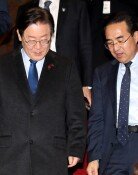Koreas Dilemma
Why did the Federal Reserve Board raise interest rates?
The raise in interest rates can be translated to the United States confidence in the economy in the upcoming days.
The Fed stated, Despite the high oil prices, consumer and company spending appear to have strengthened, and labor market conditions are recovering.
Second quarter (April-June) growth was 3.4 percent, continuing its growth from 3.8 percent of the first quarter (January-March). A total of 207,000 people were newly employed in July, the largest amount during the past year.
The Fed has lifted interest rates 10 times since June 2003 to prepare for the possibility of inflation under the strong economy.
U.S. economic experts expect, given that the Fed reiterated that it planned to raise short-term rates at a "measured" pace, (meaning rates would continue to move in quarter-point increments), the rate will reach 4.0 to 4.25 percent by the end of the year. Some say that the rate will continue to rise until early next year and reach 4.5 to 5.0 percent.
Dispute over Koreas Low Rate Policy-
Choi Gong-pil, head researcher at Korea Institute of Finance, said, The shock to the economy should be lessened by giving it signals now, instead of trying to adjust the interest rate in large portions.
Choi Woon-youl, vice president of Sogang University and a former member of the Monetary Policy Committee of the Bank of Korea, emphasized the need for higher interest rates by stating, The low rate policy did not help attract investments, but instead incurred real estate price hikes and snowballing household debts.
On the other hand, many argue that Korea was only able to maintain its growth because of the low-rate policy, and that the rate should not be raised in consideration of the households burdened with debts, and small and medium enterprises with financing difficulties.
The government and the Bank of Korea is of the opinion that at this stage, the focus should be on stimulating the economy, but the rise of call rates seems inevitable with the growing difference in call rates between Korea and the United States.







